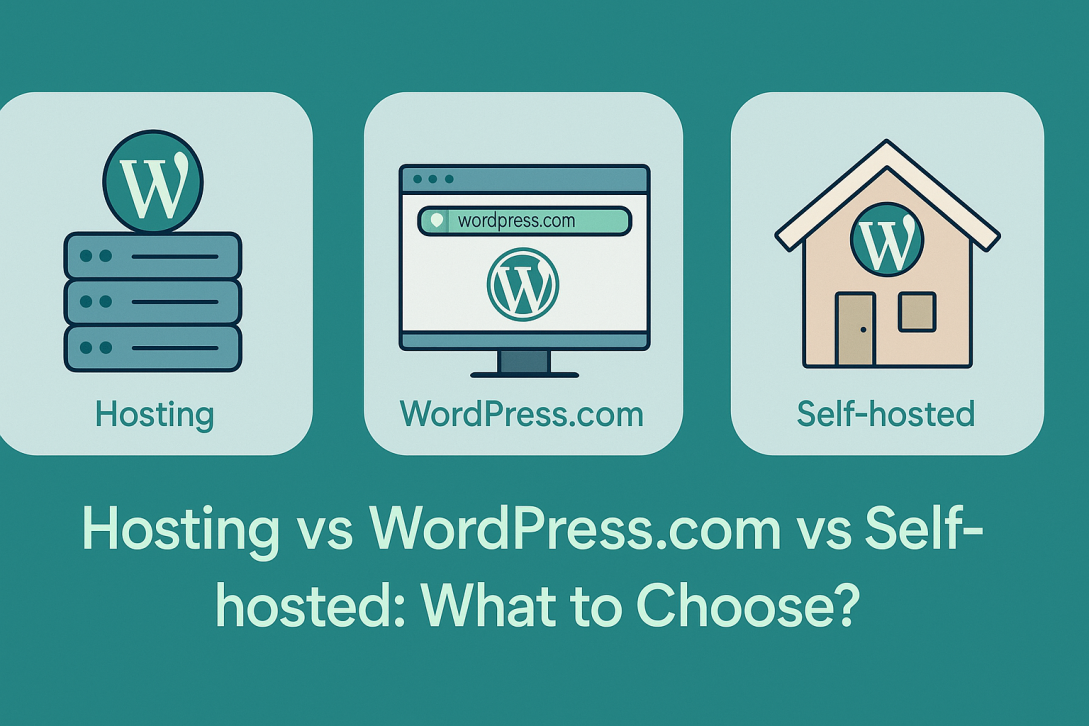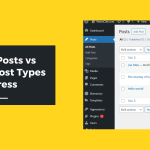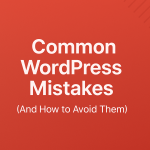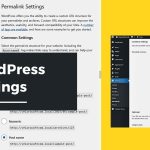In 2025, launching a website is easier than ever. But with that ease comes an overwhelming number of choices, especially when it comes to hosting your WordPress site. Whether you’re starting a blog, launching a portfolio, opening an online store, or building a digital product, one of the very first decisions you’ll face is this: How should I host my WordPress site?
This question isn’t just about servers or storage it’s about control, scalability, features, and, ultimately, your site’s future. Should you go with the ever-popular WordPress.com? Should you host the site yourself using WordPress.org on shared or managed hosting? Or should you go the advanced route with cloud or VPS infrastructure?
Each path has its own benefits and trade-offs, and choosing the right one depends on your goals, budget, and technical confidence. This guide aims to break down the differences clearly and thoroughly. We’ll explore what WordPress.com offers, contrast it with self-hosted WordPress, and walk through different types of hosting—from budget shared servers to powerful cloud platforms.
By the end of this guide, you’ll have a clear understanding of your options, and more importantly, which one is right for you.
Part 1: Understanding WordPress.com
WordPress.com is a hosted service run by Automattic, the company behind the WordPress project. It’s often the first stop for beginners because it removes much of the technical friction associated with managing a website.
What WordPress.com Offers:
When you sign up for WordPress.com, you’re getting:
- Pre-installed WordPress
- Automatic backups and updates
- Built-in security and performance features
- Access to themes and plugins (depending on your plan)
- A simplified dashboard tailored for non-technical users
In short, it’s an all-in-one, “set-it-and-forget-it” platform.
But there’s a catch: it operates within a closed ecosystem.
Free Plan Limitations
The free tier is great for experimentation, but it comes with limitations:
- You can’t install third-party plugins
- You can’t use custom themes
- WordPress.com branding appears on your site
- You can’t connect your own domain unless you upgrade
This model is perfect for hobby bloggers or simple personal sites but quickly becomes restrictive for business or custom development needs.
Premium Plans: Unlocking More Features
WordPress.com offers tiered pricing plans:
- Personal – Removes ads, allows a custom domain
- Premium – Adds basic design tools, email support
- Business – Allows third-party plugins and themes
- Commerce – Adds WooCommerce and payment gateway support
- Enterprise – For large-scale sites with priority support
Once you hit the Business plan, you start to unlock the real power of WordPress—but at a cost. At that point, many users start asking, “Why not just host this myself?”
Part 2: What Is Self-Hosted WordPress?
Self-hosted WordPress refers to downloading the free open-source WordPress software from WordPress.org and installing it on a web host of your choice.
This is what most developers, freelancers, agencies, and growing businesses use. It gives you full control over every aspect of your site.
Here’s what you get with a self-hosted setup:
- Install any plugin or theme—no restrictions
- Customize your code, templates, and functionality
- Use any third-party integrations
- Access to your site’s database and files
- No branding or ads you can’t remove
Self-hosted WordPress is more powerful but also requires more responsibility. You must manage your own updates, security, backups, and performance (unless you pay a managed host to handle that for you).
Part 3: Comparing Key Differences
Let’s walk through the major differences between WordPress.com and self-hosted WordPress in more detail:
1. Control and Customization
- WordPress.com: Limited unless you pay for Business or higher.
- Self-hosted: Unlimited. You own your environment.
2. Cost
- WordPress.com: Free to ~$540/year depending on your plan.
- Self-hosted: Domain + Hosting can range from ~$60/year to $600/year based on provider and traffic.
3. Maintenance
- WordPress.com: Hands-off. They handle updates and backups.
- Self-hosted: You’re responsible, or you pay for managed hosting.
4. Monetization and Ads
- WordPress.com: Limited ad networks unless you upgrade.
- Self-hosted: You can use any ad platform, affiliate system, or eCommerce tool.
5. Scalability
- WordPress.com: Scales well, but features are gated behind price tiers.
- Self-hosted: Scales with your host. More flexibility, but more configuration.
Part 4: Types of Hosting for Self-Hosted WordPress
If you decide to go the self-hosted route, you then need to choose what kind of hosting best suits your needs. There are five primary types.
1. Shared Hosting
- Cheapest option (as low as $3/month)
- Your site shares server resources with many others
- Good for hobby blogs or simple portfolios
- Limited speed, scalability, and support
Examples: Bluehost, HostGator, DreamHost
2. Managed WordPress Hosting
- Hosting optimized specifically for WordPress
- Automatic updates, security, caching, backups
- Premium support from WordPress experts
- More expensive, but beginner-friendly
Examples: SiteGround, Kinsta, WP Engine
3. VPS Hosting (Virtual Private Server)
- More powerful than shared hosting
- You get a portion of a physical server with root access
- Requires more technical knowledge
- Great for developers and growing businesses
Examples: InMotion Hosting, A2 Hosting
4. Cloud Hosting
- Highly scalable and reliable
- Pay-as-you-go pricing
- Ideal for traffic spikes or global reach
- Needs dev knowledge or managed service layer
Examples: Cloudways (on top of AWS, Google Cloud), RunCloud, GridPane
5. Dedicated Servers
- Full control of an entire server
- High performance and total flexibility
- Best for enterprise or mission-critical apps
- Expensive and requires a sysadmin or DevOps knowledge
Part 5: Use Case Comparisons
To help you decide, let’s match these platforms to real-world goals:
Beginner Blogger
- Best Fit: WordPress.com Free or Personal
- No custom needs, no monetization yet, wants a writing outlet.
Freelancer/Portfolio Site
- Best Fit: Self-hosted WordPress on Shared or Managed Hosting
- Needs own domain, more control, custom design.
Business Website
- Best Fit: Self-hosted on Managed WordPress Hosting
- Custom contact forms, SEO plugins, email integrations.
Online Store
- Best Fit: Self-hosted with WooCommerce on Managed or Cloud Hosting
- Full control over checkout, shipping, taxes, and product design.
Nonprofit or Community Site
- Best Fit: WordPress.com Business or Self-hosted with budget hosting
- Needs low maintenance, donation plugins, multilingual support.
Part 6: When WordPress.com Makes Sense
WordPress.com is great for:
- People who want zero maintenance
- Educators or students building classroom sites
- Writers who want a blog without tech hurdles
- Individuals who don’t care about customization or plugin flexibility
If you’re not planning to monetize your site or modify it heavily, WordPress.com is a safe and polished experience—especially with its mobile apps and simplified dashboard.
It also includes solid uptime, spam protection, and Jetpack features baked in. It’s the Apple of WordPress: elegant, opinionated, and streamlined.
Part 7: When Self-hosting Is the Better Choice
If you plan to:
- Monetize your site through ads, products, or services
- Use niche plugins or themes not available on .com
- Customize templates or modify backend code
- Scale a content site, marketplace, or membership program
…then self-hosting is the way to go. The freedom you get is unmatched. With great power comes great responsibility—but also great opportunity.
Even if you’re not technical, managed WordPress hosts offer the best of both worlds: they handle performance, backups, and security while you focus on building content and features.
Part 8: Cost Breakdown in 2025
Here’s a rough cost comparison for a beginner setup in 2025:
| Platform | Yearly Cost | Plugins Allowed | Custom Themes | Monetization |
|---|---|---|---|---|
| WordPress.com Free | $0 | No | No | No |
| WordPress.com Personal | ~$48 | No | Limited | No |
| WordPress.com Business | ~$300 | Yes | Yes | Yes |
| Shared Hosting + WordPress.org | ~$60–100 | Yes | Yes | Yes |
| Managed WordPress Hosting | ~$180–600 | Yes | Yes | Yes |
Self-hosted wins on flexibility and long-term cost scalability. WordPress.com wins on simplicity and out-of-the-box polish.
Part 9: Migrating from WordPress.com to Self-Hosted
If you start with WordPress.com and outgrow it, you can migrate your site to self-hosted WordPress.
Steps include:
- Export content from WordPress.com
- Import into self-hosted via Tools > Import
- Install plugins and themes manually
- Redirect your domain or URLs if needed
- Set up analytics and SEO again
While not trivial, the process is manageable and well-documented.
Many hosting companies even offer free migration services.
Part 10: Final Questions to Ask Before You Choose
Still undecided? Ask yourself these:
- Do I want full control over my site?
- Will I need to install custom themes or plugins?
- Am I planning to grow or monetize my site?
- How comfortable am I with technology?
- What is my monthly/annual budget?
If you lean toward control, flexibility, and growth—go self-hosted.
If you prioritize simplicity, convenience, and don’t plan to customize—go with WordPress.com.
Final Thoughts: You Can’t Go Wrong by Starting
The best part of all this? There’s no wrong answer. You can start simple and scale up. You can experiment and migrate. The key is to start.
The WordPress ecosystem is robust and beginner-friendly. Whether you choose WordPress.com or self-hosting, you’re investing in a platform that has stood the test of time and continues to grow.
Choose the path that matches your current confidence level and website goals. Learn as you go. And know that you can always pivot later.
Last modified: May 7, 2025












